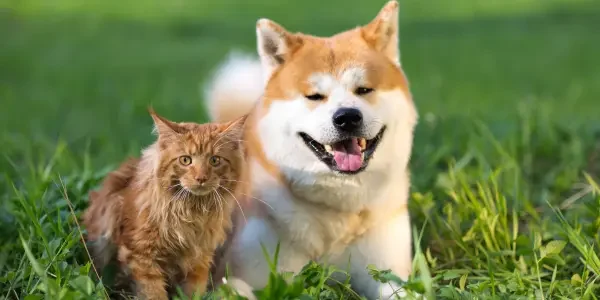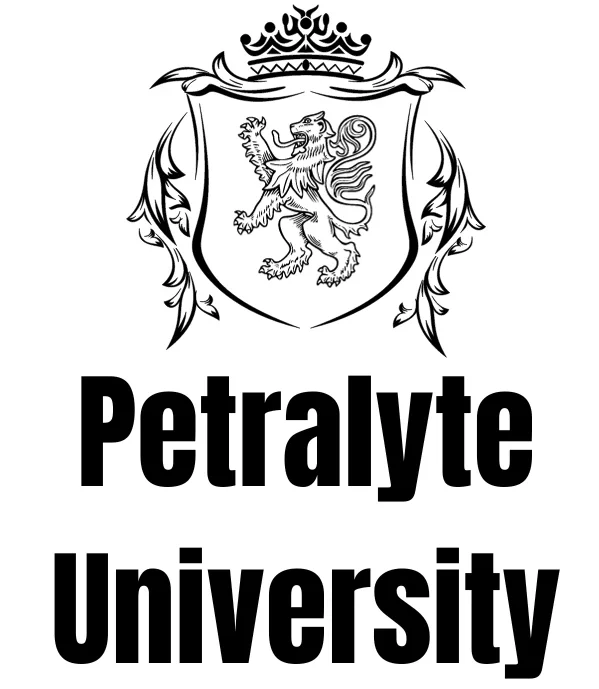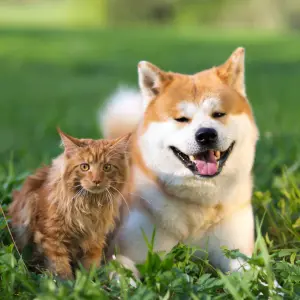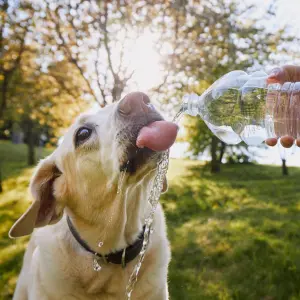Vitamin Deficiencies in Pets: Signs, Symptoms, and Solutions
Ensuring your pet maintains optimal health is crucial, and a key component of their well-being is the right balance of vitamins. Vitamins play vital roles in bodily functions such as growth, vision, and immune response. This article explores the common vitamin deficiencies in dogs and cats, their signs and symptoms, and effective solutions to prevent and address these issues.

Understanding Vitamins and Pet Health
Vitamins are essential organic compounds that are crucial for the normal physiological functions of pets, including growth, digestion, and nerve function. Unlike most minerals, vitamins cannot be synthesized by the body in sufficient quantities and must therefore be obtained through the diet.
Role of Vitamins in Pets’ Bodies
Each vitamin plays a specific role in maintaining the health of a pet:
Fat-soluble vitamins (A, D, E, K) are stored in the body’s fatty tissue and liver. They are crucial for maintaining vision, skin health, cellular function, and the protection against oxidative damage.
- Vitamin A is vital for maintaining healthy eyesight and immune function.
- Vitamin D regulates the calcium and phosphorus balance, influencing bone formation and muscle control.
- Vitamin E serves as an antioxidant that protects body tissue from damage caused by free radicals.
- Vitamin K is essential for blood clotting and wound healing.
Water-soluble vitamins (B and C) are not stored in the body and excess amounts are usually excreted in urine. These vitamins must be consumed regularly to avoid deficiency.
- B Vitamins (like B1, B2, B3, B6, and B12) are pivotal in energy production, brain function, and cell metabolism.
- Vitamin C is generally less of a concern for dogs and cats as they can synthesize it in their liver; however, supplementation can be beneficial in times of stress or illness.
Sources of Vitamins
Pets typically receive the vitamins they need from a well-balanced diet tailored to their specific stage of life, breed, and health status. Here’s how pets can obtain these vitamins:
- Commercial Pet Foods: Most high-quality commercial pet foods are formulated to provide a complete and balanced diet that includes all necessary vitamins and minerals. For pet owners choosing commercial diets, it’s important to select a food appropriate for their pet’s specific life stage, size, and health needs.
- Natural Food Sources: Some pet owners prefer to supplement their pets’ diets with natural foods rich in specific vitamins. For instance:
- Leafy greens and carrots can provide Vitamin A.
- Fatty fish like salmon are excellent sources of Vitamins D and E.
- Liver can be a good source of both Vitamin A and several B vitamins.
Common Vitamin Deficiencies in Dogs
Vitamin deficiencies in dogs can lead to various health issues, ranging from minor ailments to serious chronic conditions. Understanding these deficiencies and knowing how to address them is crucial for maintaining the health and well-being of your canine friend.
Vitamin A Deficiency
- Role of Vitamin A: Essential for proper vision, immune function, and maintaining healthy skin and coat.
- Signs of Deficiency: Poor vision, especially in dim light (night blindness); dry, dull coat; skin issues; and increased susceptibility to infections.
- Solutions: Incorporate foods rich in Vitamin A such as liver, carrots, and sweet potatoes into the diet. High-quality commercial dog foods typically contain adequate levels of Vitamin A. If considering supplementation, consult a veterinarian to avoid toxicity, as Vitamin A is fat-soluble and can accumulate in the body.
Vitamin D Deficiency
- Role of Vitamin D: Crucial for the regulation of calcium and phosphorus, maintaining healthy bones and teeth.
Signs of Deficiency: Weakness, lethargy, bone deformities, and muscle atrophy. In severe cases, Vitamin D deficiency can lead to rickets in puppies and osteomalacia in adult dogs.
Solutions: Sunlight exposure helps some, but dietary sources are necessary. Include foods like fish oil, beef liver, and egg yolks, or vet-recommended Vitamin D supplements. Regular blood tests may be necessary to monitor levels and ensure they are within a safe range.
Vitamin E Deficiency
- Role of Vitamin E: An antioxidant that helps protect the body against oxidative damage, supports immune function, and is vital for skin and coat health.
- Signs of Deficiency: Poor response to immune challenges, eye disorders, muscle degeneration, and reproductive issues.
- Solutions: Supplement the diet with wheat germ, plant oils (e.g., sunflower, safflower oil), and nuts. Check commercial food labels to ensure they meet your dog’s Vitamin E needs as recommended by AAFCO. Consult with a veterinarian for the appropriate supplementation dosage.
Vitamin K Deficiency
- Role of Vitamin K: Necessary for proper blood clotting and bone health.
- Signs of Deficiency: Increased bleeding times which can lead to hemorrhaging in severe cases. This deficiency is often noticed after an injury or surgery.
Solutions: Vitamin K is generally well supplied by a balanced diet. However, deficiency might occur due to ingestion of certain toxins or poisons (e.g., rat poison that acts as a Vitamin K antagonist) or malabsorption issues. Treatment includes Vitamin K1 injections under veterinary supervision and removing any potential source of poisoning.
Vitamin B Complex Deficiencies
- Role of B Vitamins: B vitamins like B1 (Thiamine), B6, and B12 are crucial for energy metabolism, brain function, and maintaining healthy skin, blood cells, and nervous system.
- Signs of Deficiency:
- B1 (Thiamine): Loss of appetite, confusion, muscle weakness, and in severe cases, neurological problems including seizures.
- B6: Poor growth, anemia, kidney stones, and tooth decay.
- B12: Fatigue, lethargy, anemia, and intestinal problems.
- Solutions: Ensure a well-balanced diet that includes whole grains, beans, vegetables, and meat. Discuss with your vet about supplementing with a B-complex vitamin, particularly if your dog is on a homemade diet, as cooking and food processing can destroy B vitamins.
Common Vitamin Deficiencies in Cats
Cats have specific dietary needs that are quite different from dogs, and ensuring they get the right vitamins is key to their health. Below, we explore common vitamin deficiencies in cats, including signs to watch for and solutions to these deficiencies.
Vitamin A Deficiency
- Role of Vitamin A: Essential for vision, growth, immune function, and skin health.
- Signs of Deficiency: Poor vision, especially in low light; poor coat quality; skin issues; and a susceptibility to infections.
- Solutions: Unlike dogs, cats cannot convert beta-carotene from plant sources into Vitamin A, so it must come from animal-based sources. Liver, fish oils, and commercial cat foods are typically rich in Vitamin A. Supplementation should be approached with caution and under veterinary guidance to avoid toxicity.
Vitamin D Deficiency
- Role of Vitamin D: Vital for maintaining proper calcium and phosphorus balance, which supports healthy bones and muscles.
- Signs of Deficiency: Muscle weakness, bone deformities, and general lethargy. Severe deficiency can lead to life-threatening conditions such as secondary hyperparathyroidism.
- Solutions: Vitamin D is mostly obtained from the diet, as cats do not effectively synthesize it from sunlight. Good sources include fortified foods and fish oil. Regular dietary assessments by a veterinarian can ensure that cats receive adequate amounts without the risk of overdose.
Vitamin E Deficiency
- Role of Vitamin E: An antioxidant that protects against oxidative damage, supports the immune system, and is essential for skin health.
- Signs of Deficiency: Steatitis (also known as yellow fat disease), which is painful inflammation of the body’s fat, and a dull coat.
- Solutions: Natural sources of Vitamin E include plant oils, nuts, and seeds, though these are not typical in a cat’s diet. Most high-quality cat foods contain sufficient Vitamin E. If needed, Vitamin E supplements can be added, particularly if the cat eats a lot of fish, which can deplete Vitamin E levels.
Vitamin K Deficiency
- Role of Vitamin K: Critical for blood clotting.
- Signs of Deficiency: Increased bleeding times which may not be immediately obvious until there is an injury or surgery.
- Solutions: Dietary sources of Vitamin K include liver and leafy greens, although cats typically get enough from commercial cat foods. Deficiency usually occurs due to ingestion of rodenticides or diseases that interfere with fat absorption. Vitamin K should not be supplemented without a specific recommendation from a veterinarian due to potential interactions with other medications.
Vitamin B Complex Deficiencies
- Role of B Vitamins: These vitamins are crucial for metabolic processes, maintaining healthy skin and muscles, and nerve function.
- Signs of Deficiency:
- B1 (Thiamine): Critical for brain function and carbohydrate metabolism. Deficiency can lead to loss of appetite, seizures, and even death.
- B3 (Niacin): Essential for energy production. Deficiency results in bloody diarrhea, inflamed gums, and severe weight loss.
- Solutions: Ensuring a balanced diet is the best way to prevent B vitamin deficiencies. Be particularly cautious with homemade diets and raw fish, which can destroy thiamine. Supplementation might be necessary for cats on non-commercial diets, under veterinary advice.
Conclusion
Recognizing and addressing vitamin deficiencies in pets is crucial for their long-term health. With careful observation and proper dietary management, you can ensure your pet stays happy and healthy. Regular veterinary visits are key to achieving this goal.
By staying informed about local water quality and considering the ecological footprint, pet owners can make choices that align with their values and contribute to the health of their pets and the planet.



